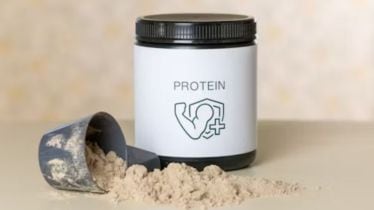In gyms, homes, and even office drawers, protein powders have become a staple in the daily routine of fitness enthusiasts. Whether you’re trying to build muscle, lose fat, or just hit your daily protein goals, a scoop of protein has become the go-to fuel for many. But with hundreds of options on the market, picking the right one can feel overwhelming. That’s why it’s crucial to know what you’re putting into your body.
“These days, most workouts feel incomplete without a post-exercise protein shake. Protein powders offer convenience and speed, especially for people who can’t cook or don’t have time to plan high-protein meals every day,” says Pooja Udeshi, Consultant Sports Nutritionist at Kokilaben Dhirubhai Ambani Hospital, Mumbai.
With busy lifestyles, changing diets, and increasing awareness about fitness, people are turning to protein supplements to fill in nutritional gaps. For those on a weight-loss journey, protein helps preserve muscle mass and improve satiety, which means you feel full for longer and snack less.
But poor quality supplements may do more harm than good — from hidden sugars and artificial additives to ineffective protein blends. So, how do you pick the right one?
Here are five expert-approved checks before you buy your next tub:
1. Check the protein source and type
Your body needs a protein it can digest and absorb well. The most common sources include whey, casein, and plant-based proteins like pea, soy, or rice.
“Whey isolate is more refined than whey concentrate. It has less fat and carbs, which makes it great for those watching calories,” explains Udeshi.
“If you’re vegan or lactose-intolerant, go for plant-based options,” she adds.
2. Look at the protein content per serving
What matters isn’t just the size of the scoop — it’s how much protein you’re actually getting.
“Good-quality powders offer 20–25 grams of protein per scoop,” says Udeshi.
“The protein content should make up at least 70–90 per cent of the product,” she warns. Anything less could mean it’s filled with unwanted extras.
3. Read the ingredient list carefully
Many powders contain unnecessary additives that can upset your gut or simply add empty calories. “Avoid added sugars, artificial sweeteners like sucralose or aspartame, and fillers like gums or thickeners,” advises Udeshi.
“Shorter, cleaner ingredient lists are always better,” she adds.
4. Look for third-party testing and certifications
Trustworthy brands get their products tested and certified to prove purity and safety.
“Look for certifications like Informed Choice, NSF Certified for Sport, or at the very least, FSSAI approval in India,” says Udeshi.
“This ensures the product is free from banned substances and is accurately labelled.”
5. Check brand reputation and reviews
Don’t go by marketing hype alone. “Buy from brands that are transparent, have good customer reviews, and ideally share lab test results,” Udeshi recommends. Protein powders can support your fitness and weight-loss goals — but only if you choose wisely. “Supplements are just that — a supplement, not a shortcut. Pick smart, and let it support your lifestyle,” Udeshi says. A well-informed choice can improve recovery, preserve muscle, and help you get stronger.
